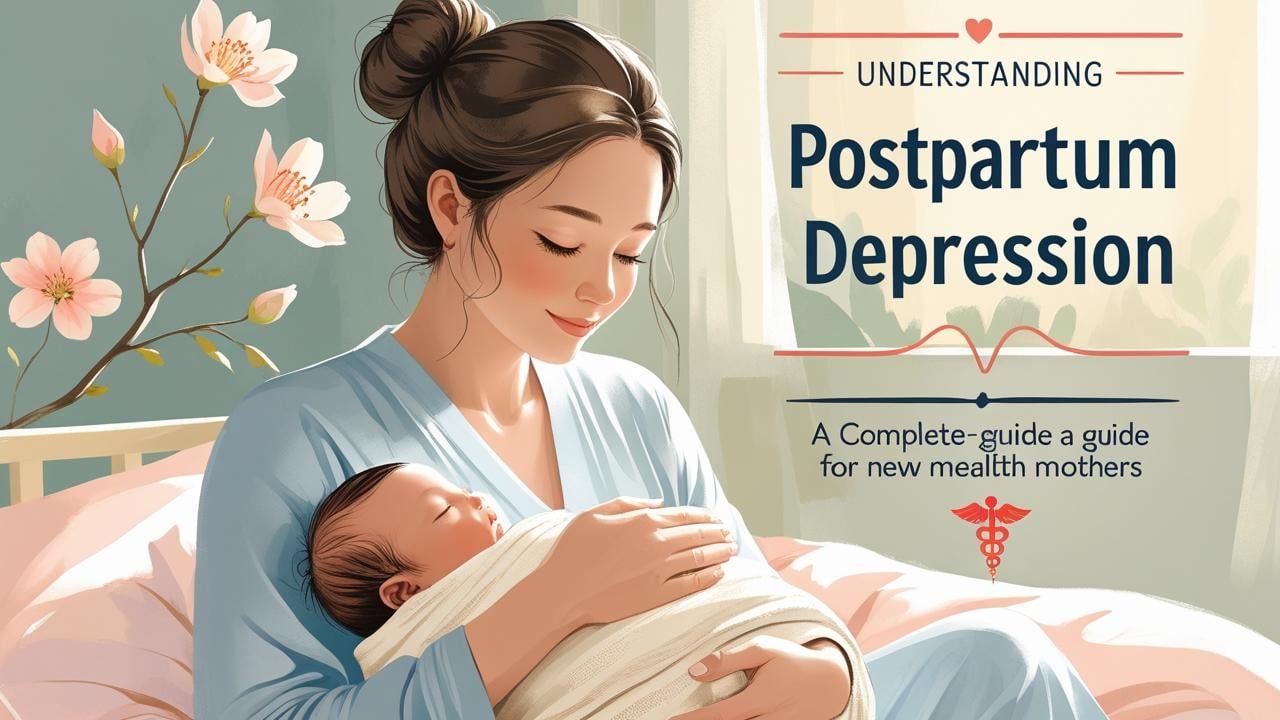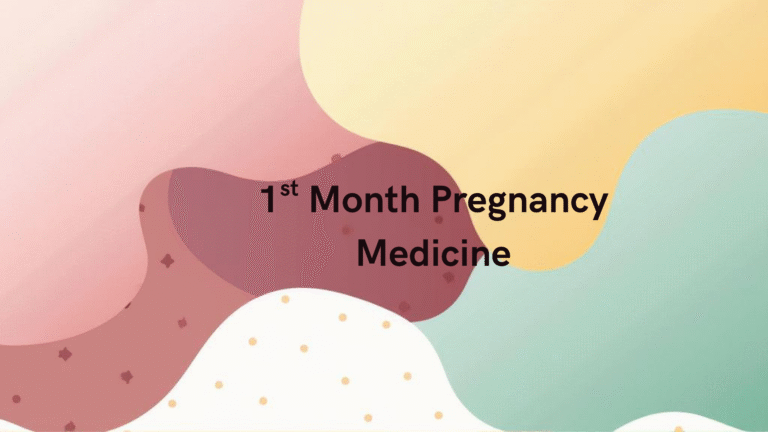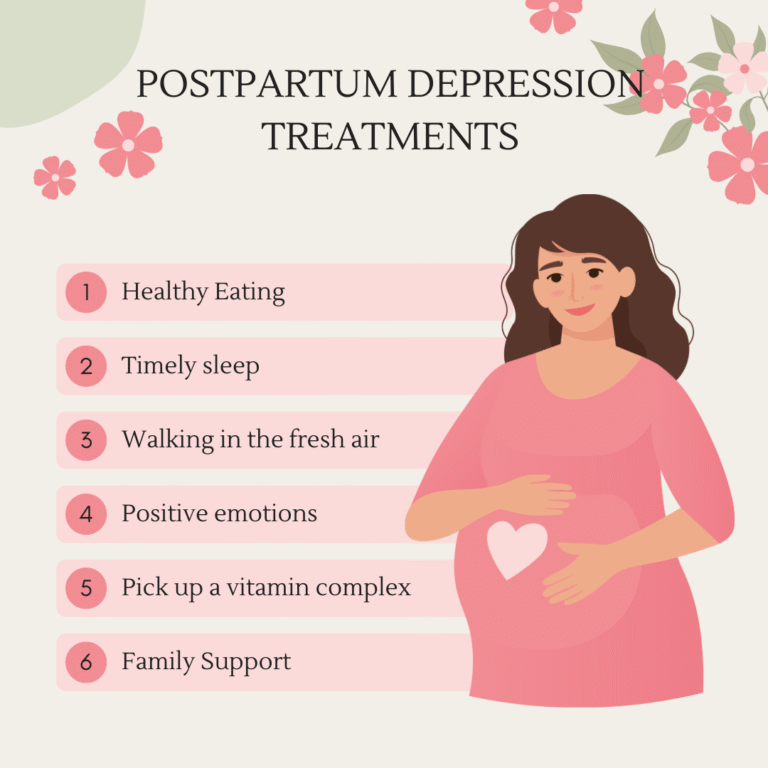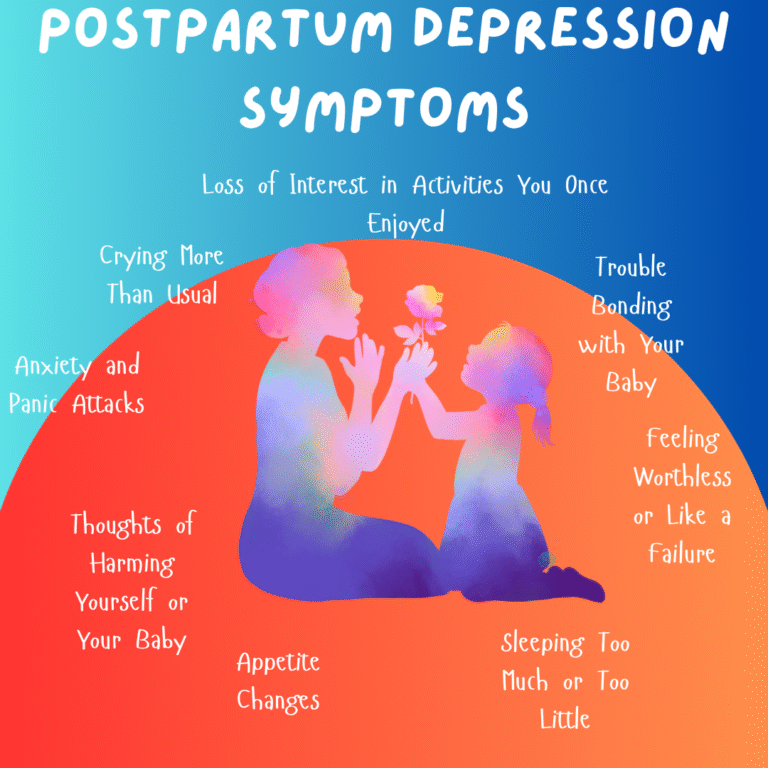
Postpartum Depression
What Is Postpartum Depression?
Postpartum depression (PPD) is a type of mood disorder. It happens after childbirth. Many mothers experience sadness, anxiety, or tiredness during this phase. It’s more than just “baby blues.” It can last longer and affect daily life.
Is It Common?
Yes, very common. 1 in 7 women experiences postpartum depression. So, you are not alone. It can affect any mother—first-time or experienced.
Difference Between Baby Blues and PPD
| Baby Blues | Postpartum Depression |
|---|---|
| Lasts a few days to 2 weeks | Lasts more than 2 weeks |
| Mild mood swings | Severe sadness, anxiety |
| Goes away on its own | Needs help and treatment |
Symptoms of Postpartum Depressions
You may notice:
- Feeling sad or hopeless
- Crying often
- Losing interest in things
- Trouble bonding with your baby
- Feeling worthless
- Sleeping too much or too little
- Changes in appetite
- Feeling anxious or panicked
- Thoughts of harming yourself or the baby
If these symptoms last more than two weeks, seek help.
Detailed Guide on : Postpartum Depression Symptoms: A Compassionate Guide for New Mothers
Causes of Postpartum Depression
There is no single cause. But common reasons include:
- Hormonal changes after delivery
- Lack of sleep
- Stressful life situations
- Family history of depression
- Feeling alone or unsupported
When to See a Doctor in Postpartum Depression
If you:
- Feel overwhelmed every day
- Can’t care for yourself or your baby
- Have thoughts of hurting yourself
Please talk to a doctor. PPD is treatable.
Easy Remedies for Postpartum Depression
Let’s explore safe and simple remedies:
1. Talk About It
Talk to your partner, friend, or a counselor. Sharing helps lighten the burden.
Helpful Read: Pregnancy Advice
2. Join a Support Group
Join online or local support groups for new mothers. You will feel understood and supported.
3. Rest When You Can
Sleep helps heal. Nap when the baby naps. Ask someone to watch the baby for a few hours.
4. Eat Nutritious Foods
Healthy meals boost mood. Eat fruits, nuts, whole grains, and leafy greens.
Related: Prenatal Vitamins
5. Get Fresh Air and Light Exercise
Take a short walk. Sunlight and movement lift your mood naturally.
6. Avoid Alcohol and Caffeine
They can make symptoms worse. Drink water, juice, or herbal tea instead.
7. Meditation and Breathing
Practice simple breathing exercises. Just 10 minutes a day can reduce anxiety.
8. Use a Daily Routine
Having structure gives a sense of control. Set small, daily goals.
9. Bond with Your Baby
Skin-to-skin contact and eye contact release happy hormones. This can boost your mood.
10. Consider Therapy or Medication
Sometimes, professional help is needed. Therapists or doctors may suggest talk therapy or medicine. Both are safe and effective.
Support for Fathers and Families
Postpartum depression affects the whole family. Partners should:
- Listen without judgment
- Offer help with the baby
- Encourage professional help
- Be patient and loving
Will It Go Away?
Yes, with help and time, it will. Early support leads to quicker recovery. Many moms feel stronger after coming through PPD.
Can You Prevent Postpartum Depression?
Not always, but you can lower the risk:
- Rest during pregnancy
- Eat well
- Stay active
- Talk to your doctor about any past mental health issues
Try: Pregnancy Symptoms Tracker
What You Shouldn’t Do in Postpartum Depression
- Don’t hide your feelings
- Don’t try to “snap out of it”
- Don’t blame yourself
- Don’t isolate yourself
Remember, postpartum depression is a health condition—not your fault.
Internal Tools to Help You
💊 Read About Prenatal Vitamins
Final Words
Postpartum depression is real. But you can overcome it. With the right support, love, and tools, healing is possible.
Never be afraid to ask for help. You are a great mom. You are doing your best. And you are not alone.
“Even the longest nights eventually give way to the light. You are not broken—you are becoming. Hold on, mama, brighter days are coming.”



1 thought on “Understanding Postpartum Depression: A Complete Guide for New Mothers”